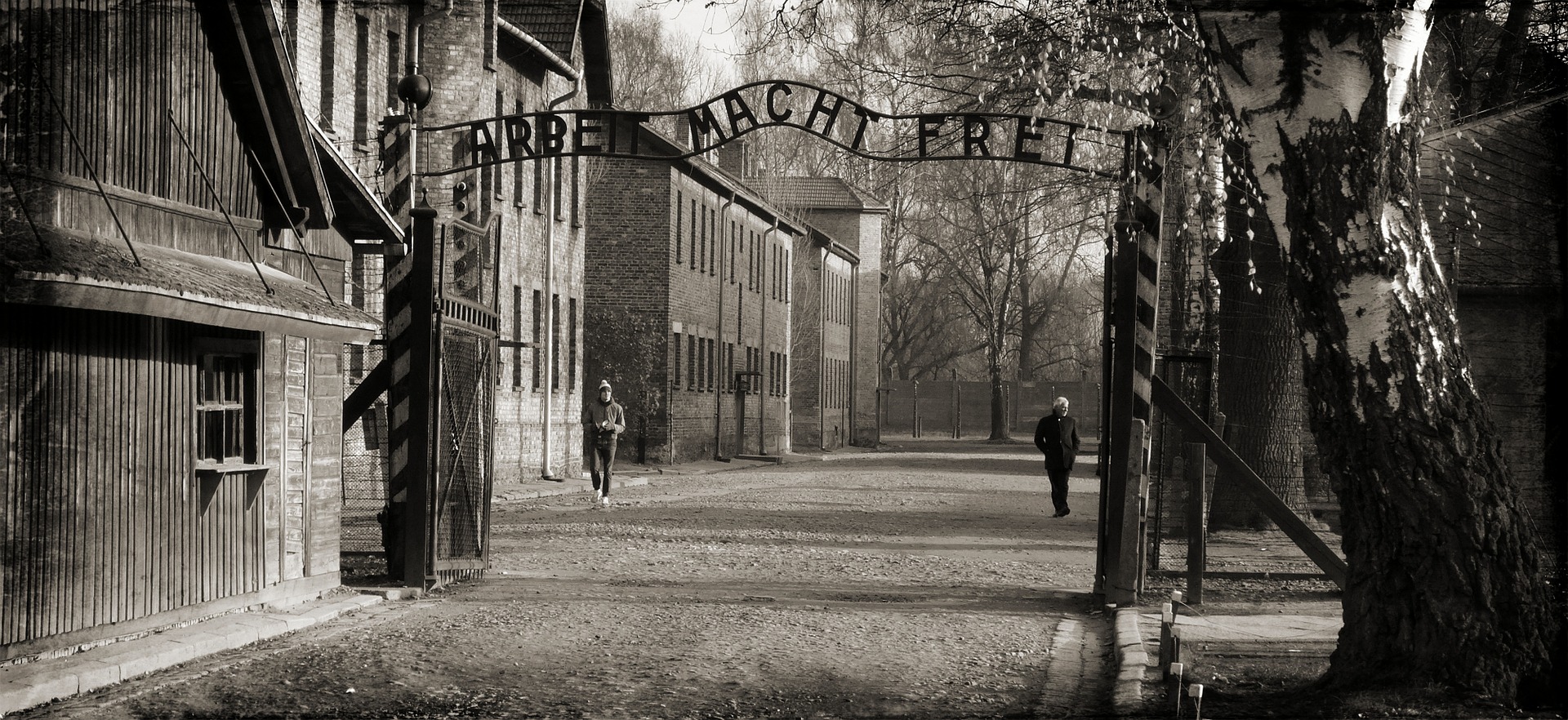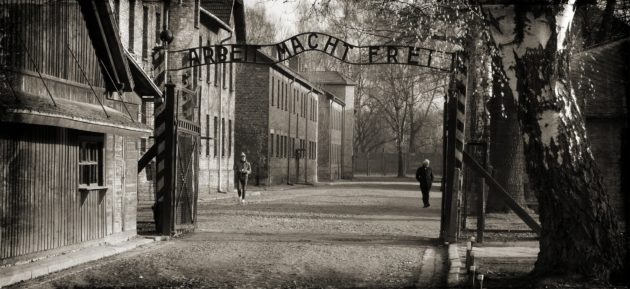
I Was Alone in Auschwitz
 Last month I went to Auschwitz alone. I was in Warsaw for a conference, and I took an extra day to go to the camps. It sounded like a good idea at the time. I mean, how could I go all the way to Poland and not go to the camps? My own family is Persian, and fled from Iran to the United States with me when I was a small child, so my own family photos do not include relatives murdered by the Nazis. But as a Jewish educator, and an educated Jew, I’ve taught Holocaust classes. I’ve sent my two older daughters on the March of the Living. I’ve watched dozens of movies, seen hundreds of pictures, met with survivors and heard their stories. My trip to Auschwitz felt like the right next step.
Last month I went to Auschwitz alone. I was in Warsaw for a conference, and I took an extra day to go to the camps. It sounded like a good idea at the time. I mean, how could I go all the way to Poland and not go to the camps? My own family is Persian, and fled from Iran to the United States with me when I was a small child, so my own family photos do not include relatives murdered by the Nazis. But as a Jewish educator, and an educated Jew, I’ve taught Holocaust classes. I’ve sent my two older daughters on the March of the Living. I’ve watched dozens of movies, seen hundreds of pictures, met with survivors and heard their stories. My trip to Auschwitz felt like the right next step.
I booked the trip, I was picked up at 6:15 am (those who know me know this in itself is pretty impressive), and I boarded a brand-new high-speed train from Warsaw to Krakow. Two hours and 15 minutes. With free tea and coffee. “Mark it down Moji,” I said to myself. “The first ironic moment of the day.” There would be several more.
When I got off the train, I was met by Marta, a cherubic woman holding a paper with my name on it. Marta smiled when she spoke, and laughed at all of my attempts at humor, so I liked her immediately. She seemed smart and thoughtful and empathetic. It was an emotionally smooth car ride, and I was thinking about what a good person she would be to have this experience with. Cue the second moment of irony. The one person who made me feel comfortable left me at the gates. She told me that she would pick me up at the end of the tour. Marta wasn’t allowed to take me in herself, but she assured me that “all the guides are good.” So there I was, standing all alone. Except for the fact that I was surrounded by thousands of people. Literally thousands. Auschwitz gets two million visitors a year, all people who walk through these gates voluntarily.
6 comments on “I Was Alone in Auschwitz”
Comments are closed.




Really enjoyed reading about your experience. Thank you.
Had time enough to go through both, way back with my German high school class, but felt alone as you did. It’s too overwhelming to not make you feel alone, singled out even in a crowd. It gets through to the bones being face to face with what mankind is capable of wrongdoing…
The most difficult memory I have of visiting Auschwitz( I had many emotionally sad ones) was seeing all the girl’s broken and castaway dolls. I had just become a grandmother and had recently bought a baby doll for my new granddaughter. Several women had to comfort me as I cried from a part deep within me. As I write this the tears are returning.
I AM PROUD OF YOU AND PLEASED THAT YOU SHARED YOUR FEELINGS. VERY BRAVE AND SO SAD THAT JEWS HAD TO EXPERIENCED THIS INHUMANITY. WE MUST NEVER FORGET. AGAIN THANK YOU.
PAT ROHNER
I visited Auschwitz in 2010 — late in the afternoon, without a guide. When I was finally ready to leave, I discovered that the gate where I’d entered was now bolted shut!
There had been no PA system broadcasting an announcement, and when I checked the time, I discovered that (absorbed as I’d been) I’d unwittingly stayed beyond visiting hours. No one else was around.
Following the wall along the perimeter of the camp, I discovered a small gate — the size of a door — with a doorknob that turned. The gate opened, and I was out at the main road, walking toward my car — truly appreciating the meaning of “liberation” as never before in my life!
Thank you for this, which I had read when it was originally published. You’ve articulated very well how I felt when I saw Auschwitz. I’ve avoided processing my experience, because of course, I had heard so many accounts of what a profoundly moving experience it was… and for me, it was not. In my case, the guide paid a LOT of attention to the fact that Catholic priests were also murdered at Auschwitz, and while this is true, we all know that the “Final Solution” was not for Catholic priests. It was for Jews. Standing before a display case full of prayer shawls and hearing her say that “of course, not everyone who died here was Jewish” felt disrespectful, dismissive, and quite shocking.
Somehow, though, it felt wrong to come back and say that I had not been moved by the experience. So I said very little. Maybe it’s time to say more.